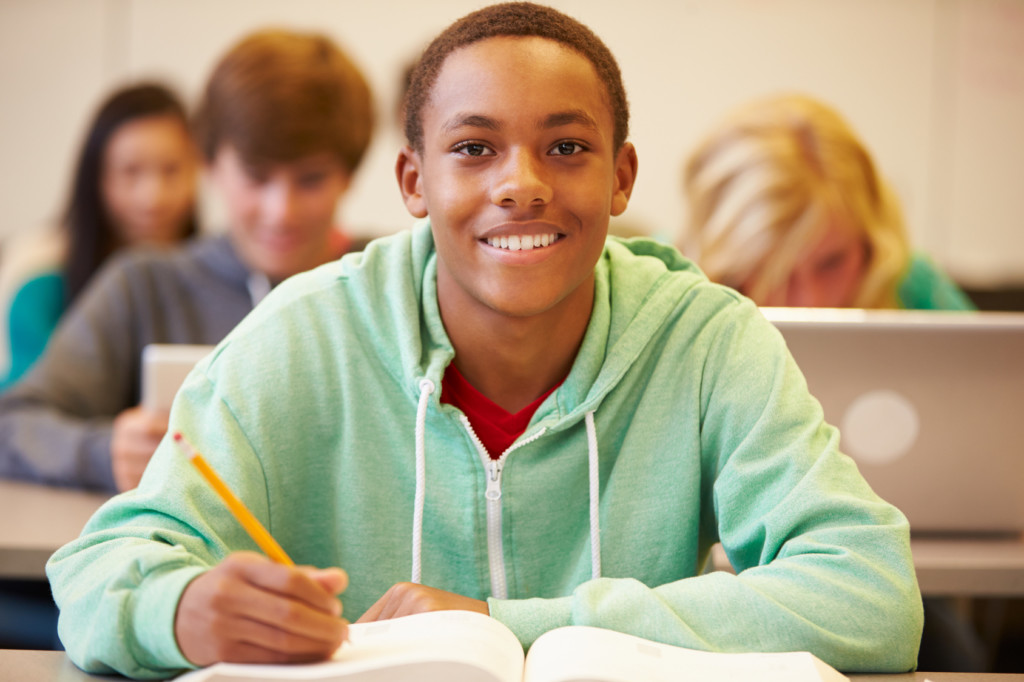Study Tips – 4 Effective Strategies for Student Success | Kellie-Anne Brown-Campbell

FOUR EFFECTIVE STUDY TIPS
Study skills are not only important for GSAT, PEP, Common Entrance, 11+ or SEA (what a mouthful!) but also for the rest of a students academic career and right into college. Standardized tests -Assessments and Diagnostics – are used to measure knowledge and track progress as early as Grade 3. Primary level students must learn to develop healthy, effective and efficient study skills. These “soft skills” help with being successful on tests and exams. They will also inevitably result in reduced levels of stress and anxiety for the student. Here are four important study tips that parents, caregivers and teachers can teach children to employ on a regular basis.
Study Tip #1: Study in ‘batches’
Avoid studying too much all at once!
Despite the old adage – “the more the merrier”, when it comes to studying, too much is NOT better. If students studying for hours at a time without breaks, they will receive diminishing returns. Our brains were made to process only so much information at any one time! Taking short breaks in between study sessions, allows our brains to process, make sense of, and efficiently store the information read. This is especially true for subjects that are very loaded with content such as Social Studies, Science or Religious Education. Short breaks allow the brain to organize the material and prepares the student to retrieve this information more readily. A tired brain is not able to effectively store information in long term memory, making it harder to recall.
A Grade 6 student could study for 20 – 25 minutes with a 10 minute break away from the book with some light physical activity.
Younger students may need to use smaller blocks of time starting with 10-15 minutes in Grade 3.
Study Tip #2: Develop a consistent study routine and schedule
This tip is critical to developing organisation skills, and training the brain and body to be ready and receptive to studying. When we train ourselves to get up at the same time every morning eventually we are able to wake at the same time even without an alarm clock. In the same way we can make our brains more receptive to focused and concentrated work if we study at the same times consistently. Having a schedule that the student develops for him or herself, with the assistance of an adult, helps that student to be more organised and deliberate about studying. Additionally, it helps to develop discipline and accountability, just like when training for a sport.
Study Tip #3: Create a Low-Tech study environment
“Is low-tech possible in this technology age?!?” There is a lot of research available – for both adults and children – on how “disconnecting” helps make us more productive. How many times have you checked WhatsApp since starting to read this article? Too often we adults are “plugged in” to our phones and laptops, teaching our children that these devices are necessary appendages. Even when this does not happen at home, children see this on the television, and other daily encounters.
We have to start training our children to “disconnect” and focus on one thing at a time.
Multitasking is really a myth. When we think about, we realize that technically we cannot give our attention to more than one thing at a time. If your child is writing a composition and has the television on, whenever she looks up to watch, she has stopped working on the composition. Children may say that they can focus on more than one thing at a time, but this is neurologically impossible.
Study Tip #4: Studying and music
Many parents who I have come in contact with throughout my practice have expressed concern about their children listening to music when studying. This is not always a bad idea! But, what type of music? Research has found that more up-tempo music, without lyrics may help improve our mood when studying. Music with lyrics can be distracting. Imagine listening to Pharrell’s “Happy” while studying Social Studies – you may unconsciously break into song! Classical music and music involving sounds of nature may help to calm and relax the mood. Some strains of classical music stimulate the brain making us more receptive to learning and enhancing memory. Research has found that listening to music when doing more repetitive tasks may help us to move faster and enjoy the task more; for example, when filling out a spreadsheet. So, the point is, choice of music is key.
***
Successful students are consistent and disciplined. They make plans and hold themselves accountable. Successful students tend to be self-motivated, able to set goals for themselves and work towards their goals. Throughout the year we must encourage our students to develop healthy habits such as described in these study tips. When exams begin, our students will be in good stead for academic success. The skills instilled by consistent practice of these study tips will place students at an advantage for life.
Written by Kellie-Anne Brown-Campbell, a licensed School Psychologist who conducts educational assessments at Caribbean Tots to Teens.
Learn More




